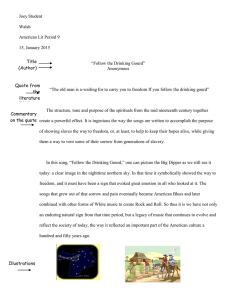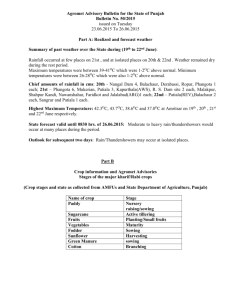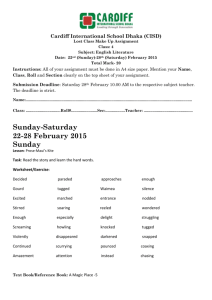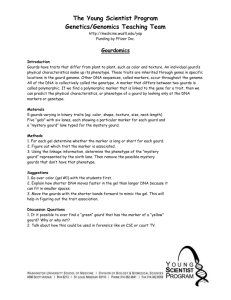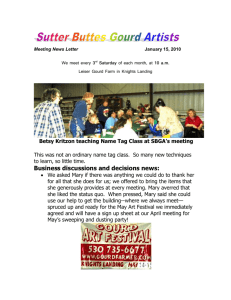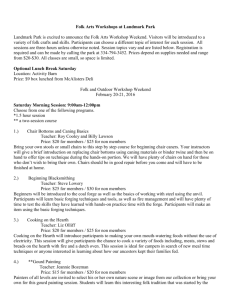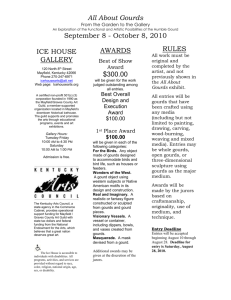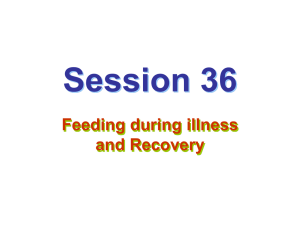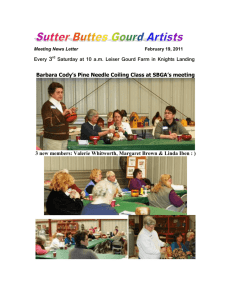District Agromet Advisory Services for Farmers of Punjab State i
advertisement
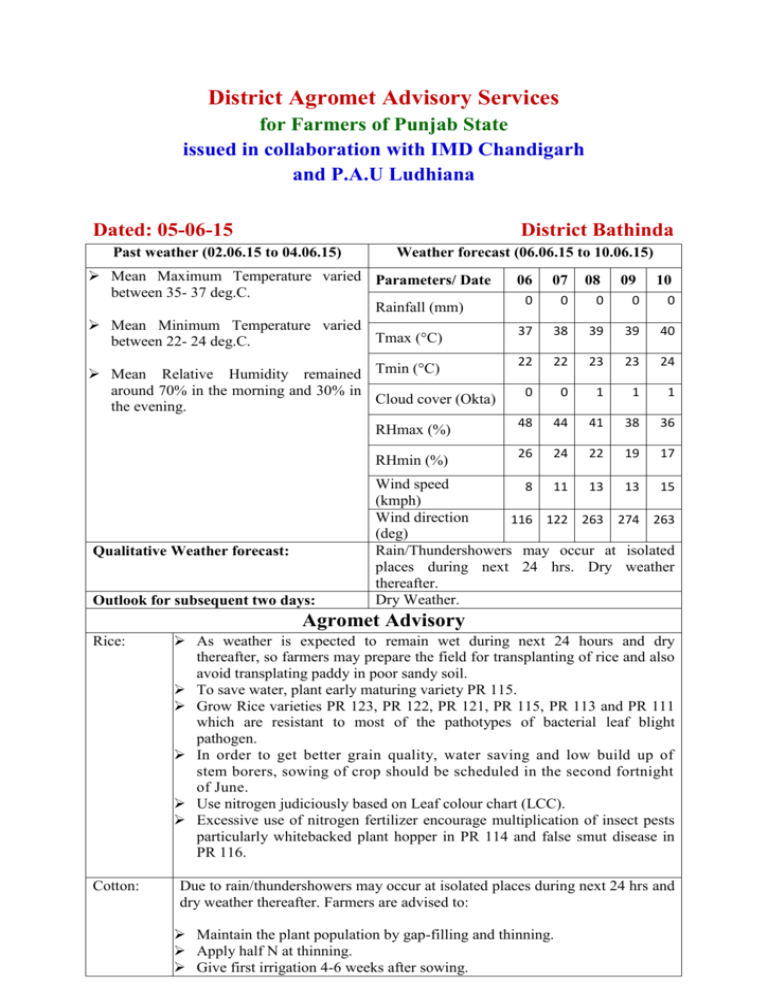
District Agromet Advisory Services for Farmers of Punjab State issued in collaboration with IMD Chandigarh and P.A.U Ludhiana Dated: 05-06-15 District Bathinda Past weather (02.06.15 to 04.06.15) Weather forecast (06.06.15 to 10.06.15) Mean Maximum Temperature varied Parameters/ Date between 35- 37 deg.C. Rainfall (mm) Mean Minimum Temperature varied Tmax (°C) between 22- 24 deg.C. Mean Relative Humidity remained Tmin (°C) around 70% in the morning and 30% in Cloud cover (Okta) the evening. RHmax (%) RHmin (%) Qualitative Weather forecast: Outlook for subsequent two days: 06 07 08 09 10 0 0 0 0 0 37 38 39 39 40 22 22 23 23 24 0 0 1 1 1 48 44 41 38 36 26 24 22 19 17 Wind speed 8 11 13 13 15 (kmph) Wind direction 116 122 263 274 263 (deg) Rain/Thundershowers may occur at isolated places during next 24 hrs. Dry weather thereafter. Dry Weather. Agromet Advisory Rice: Cotton: As weather is expected to remain wet during next 24 hours and dry thereafter, so farmers may prepare the field for transplanting of rice and also avoid transplating paddy in poor sandy soil. To save water, plant early maturing variety PR 115. Grow Rice varieties PR 123, PR 122, PR 121, PR 115, PR 113 and PR 111 which are resistant to most of the pathotypes of bacterial leaf blight pathogen. In order to get better grain quality, water saving and low build up of stem borers, sowing of crop should be scheduled in the second fortnight of June. Use nitrogen judiciously based on Leaf colour chart (LCC). Excessive use of nitrogen fertilizer encourage multiplication of insect pests particularly whitebacked plant hopper in PR 114 and false smut disease in PR 116. Due to rain/thundershowers may occur at isolated places during next 24 hrs and dry weather thereafter. Farmers are advised to: Maintain the plant population by gap-filling and thinning. Apply half N at thinning. Give first irrigation 4-6 weeks after sowing. Hoe the crop (around 45 days after sowing) to control weeds, before first irrigation. For hand weeding, use of a wheel hoe is recommended. Vegetables: Fruits: Apply light and frequent irrigation (if rainfall not occurred during next 24 hours) at evening hours to summer vegetables namely, bottle gourd, round gourd, sponge gourd, bitter gourd, okra, and cluster bean, chilli, brinjal etc. Spray Omite 57EC@300ml or Kelthane 18.5EC@300ml or Fosmite 50EC@450ml using 150L of water on brinjal to control spider mite. Spray Malathion 50EC@2ml/L of water alongwith 10g sugar/gur per L of water on muskmelon, bottle gourd, round gourd, sponge gourd, bitter gourd to control fruit fly and repeat at 7 – 10 days interval. Use fruit fly traps for peach, pear and guava orchards for the control of damage due to fruit flies. Spray the grapevines with Bordeaux mixture (2:2:50) for the control of Anthracnose disease. The fruit tree like peach, pear, grapes and guava which carry developing and maturing fruits should be irrigated, if rainfall not received during next 24 hours. Animal Provide fresh drinking water and feed well chaffed green fodder mixed with Husbandry: wheat straw to avoid Tympany. Use balanced and economical rations for milk production according to milk yield. Prefer Prefer feeding during cold part of the day especially early morning and late evening. Use colostrum feeding to young-one in early period of calving. Get the pregnancy diagnosis well in time after conception. New born calves need special care from hot weather, so provide them dry bedding and clothing (Jhull) during early period of postulation. Vaccinate the animal for the viral disease. Poultry: Keep poultry shed clean, dry, cool and well ventilated and maintain the temperature inside the shed between 55-75 F. Use economic and balanced diet for poultry breeds to avoid stress conditions. Avoid the over feeding in layers and Ad.Lib. feeding in Boilers. Avoid the feeding during extreme day time and prefer the cold hour feeding (early morning and late evening). Keep in contact with the market for the sale of egg and meat prices time to time for more profit. Collect the eggs regularly and store in cool places. Vaccinate the birds well in time and special care for Swine for infection. Use fogger and sprinkler to decrease the heat load.
